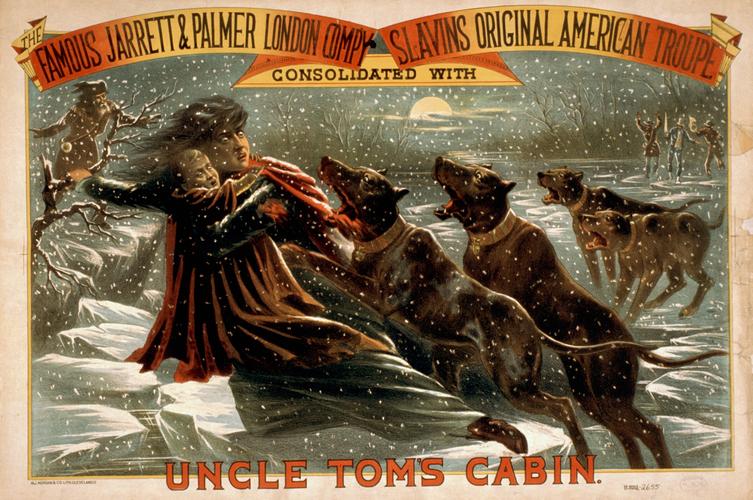Understanding the Title
When you hear the phrase “Uncle Tom’s Cabin,” what comes to mind? For many, it evokes images of a deeply troubling period in American history, a time when slavery was a stark reality. The title itself, “Uncle Tom’s Cabin,” is a reference to a character in Harriet Beecher Stowe’s 1852 novel of the same name. This essay will delve into the various dimensions of this influential work, exploring its historical context, themes, and impact on American society.
Historical Context
Harriet Beecher Stowe’s “Uncle Tom’s Cabin” was published during the 1850s, a period when the issue of slavery was at the forefront of American politics. The novel was written as a response to the Fugitive Slave Act of 1850, which made it easier for slave owners to reclaim escaped slaves. Stowe, a staunch abolitionist, sought to expose the horrors of slavery and rally support for the abolitionist cause.
Character Analysis
One of the most memorable characters in “Uncle Tom’s Cabin” is Uncle Tom, a loyal and kind-hearted slave. His name has become synonymous with the term “Uncle Tom,” often used to describe someone who is overly accommodating and subservient. However, it is important to note that Stowe’s portrayal of Uncle Tom is complex, and he is not simply a one-dimensional character. He embodies the suffering and resilience of enslaved individuals, and his character serves as a powerful symbol of the human spirit.
Other notable characters include Eliza, a young slave who escapes to freedom, and Simon Legree, a cruel and abusive slave owner. These characters help to illustrate the diverse experiences of enslaved individuals and the varying degrees of cruelty and kindness exhibited by those in power.
Themes
“Uncle Tom’s Cabin” explores several key themes, including the inhumanity of slavery, the importance of family, and the struggle for freedom. Stowe’s novel highlights the dehumanizing effects of slavery, depicting the physical and emotional abuse suffered by enslaved individuals. She also emphasizes the importance of family, as seen in the bond between Eliza and her young son, Harry.
One of the most powerful themes in the novel is the struggle for freedom. Stowe portrays the journey of enslaved individuals as a quest for liberation, both physical and spiritual. The novel’s portrayal of the Underground Railroad, a network of secret routes and safe houses used by enslaved people to escape to freedom, serves as a testament to the resilience and determination of those fighting against slavery.

Impact on American Society
“Uncle Tom’s Cabin” had a profound impact on American society. The novel became an instant bestseller and played a significant role in shaping public opinion on the issue of slavery. It is estimated that the book sold over 300,000 copies in its first year and was translated into multiple languages. Stowe’s novel also influenced the abolitionist movement, helping to galvanize support for the cause.
Additionally, “Uncle Tom’s Cabin” had a lasting impact on American literature. The novel is often credited with popularizing the genre of sentimental fiction, a style characterized by its emotional intensity and focus on the human experience. Stowe’s work has also been the subject of numerous adaptations, including stage plays, films, and television series.
Controversies and Criticisms
Despite its success and influence, “Uncle Tom’s Cabin” has not been without its critics. Some argue that the novel perpetuates harmful stereotypes about African Americans, particularly through the portrayal of Uncle Tom. Others have criticized Stowe for her portrayal of white characters, suggesting that she portrays them in a more sympathetic light than black characters.
It is important to recognize that “Uncle Tom’s Cabin” was written in a specific historical context and that its portrayal of characters and themes reflects the attitudes and beliefs of the time. While the novel may contain problematic elements, it remains a significant work in American literature and history.
Conclusion
“Uncle Tom’s Cabin” is a complex and influential work that has left an indelible mark on American society. By exploring the themes of slavery, family, and freedom, Harriet Beecher Stowe’s novel has sparked important conversations about race, identity, and human rights. While the novel is not without its flaws, its impact on American literature and history cannot be overstated.




